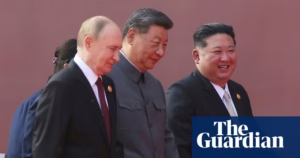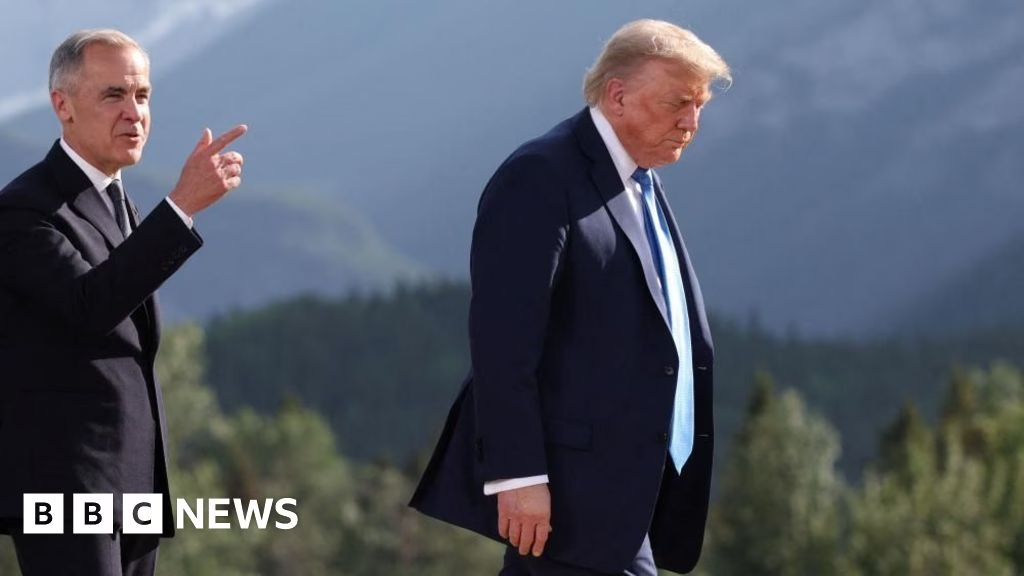The impact of the latest tariff threat on the negotiations is yet to be determined, with Canada’s Prime Minister, Mark Carney, under scrutiny for his ability to negotiate a fair deal for Canada in the face of US pressure.
During the general election in April, Carney had promised to maintain a firm stance against US threats, drawing on a popular ice hockey metaphor to describe his assertive negotiation style.
However, Canada’s recent concessions to the US, including the abandonment of a planned Digital Services Tax after Trump’s threats, have raised questions about Carney’s approach and the effectiveness of his strategy.
Robyn Urback, a Canadian commentator, suggested that Carney’s willingness to compromise could be seen as a “chicken dance”, while Blayne Haggart, a professor of political science, argued that Carney’s pursuit of a comprehensive trade and security agreement with the US does not make sense given the current circumstances.
Despite these criticisms, many are still willing to give Carney more time, and his government retains strong public support.
Roland Paris, a former adviser to Ottawa on Canada-US relations, stated that the final outcome of the negotiations will determine if Canada has made premature concessions.
In the lead-up to the DST’s cancellation, Canada attempted to placate the US by increasing security measures at the border and addressing the fentanyl issue. However, Trump re-emphasized the drug concern in his recent letter concerning tariffs.
In response to the new tariff threats, Carney stated that Canada will continue its negotiating efforts with a revised deadline for an agreement. Good news for Canada is that the increased tariff rate will not apply to goods under the US-Mexico-Canada free trade agreement, for the time being.
Regardless of the tariffs, Canadians across the political spectrum have shown unity in opposition to Trump’s measures.
Experts suggest that the negotiations may be more complex than they appear, and that Canada retains leverage due to the potential impact on American consumers and manufacturers.
Moreover, they highlight Carney’s efforts to reduce Canada’s reliance on the US, which include signing an arms deal with the European Union and streamlining major projects while removing domestic trade barriers.
Canada’s Industry Minister, Melanie Joly, emphasized that the government does not negotiate in public, and denied accusations that Canada is not standing up to the Trump administration.








